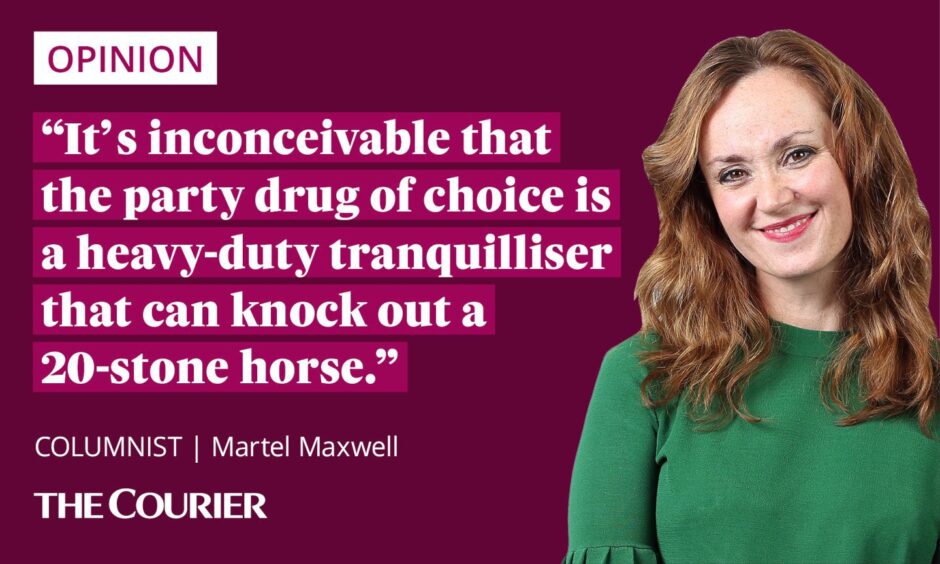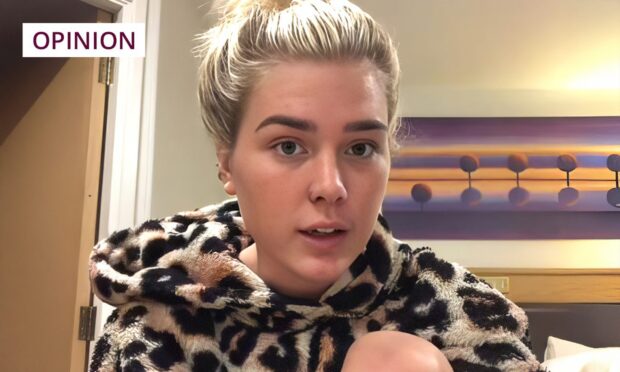A few years ago, when an old work colleague told me their son’s pal was brought home early from their school leavers’ party, my jaw hit the floor.
Not because an 18-year-old happened to be worse for wear – if we think back, there was always one who took it too far. You hoped it wasn’t you and now, if you’re the parent, you hope it isn’t them.
And not because my friend referred to the event as the Americanised “school prom”.
The reason for my shock was that this teenage boy had been taken home after taking ketamine.
The horse tranquilliser? I asked in horror.

I’d heard about the drug being used to spike drinks in clubs, with women suddenly feeling disorientated, having hallucinations and blacking out.
But this boy from the Midlands in England hadn’t been spiked – he had voluntarily taken it and my friend told me he wasn’t alone.
Among his pals, ‘Ket’, Special K’, ‘Kenny’ or ‘K’ was the party drug of choice.
In the years that have passed, I’ve been on high alert for ketamine stories in the press.
Far from being a new phenomenon, according to the government crime survey for England and Wales, the proportion of 16 to 24-year-olds using the drug rose in 2017-2018 from 1.2% to 3.1%, the highest figure since records began in 2006-2007.
Then, this week, the horrifying truth of the drug’s ravaging effects were laid bare by a young woman from Arbroath.
The Courier told how Lauren Anderson, 23, used social media platform TikTok to post a video on her addiction to Ketamine.
By clicking the link, I joined the tens of thousands of people have watched it – and I was moved to tears.
Lauren is beautiful and she is brave, searingly honest in her account of becoming addicted.
She first tried it at a house party where older kids were taking drugs in a bedroom. She wasn’t sure about taking anything but eventually, with a pal, decided to try a tiny amount of ket, part out of curiosity, party to be cool and fit in.
Replace the fact it was ketamine with alcohol and almost everyone can relate to that experience, where someone’s sneaked in a potent ‘mixy’ of spirits from their parents’ drinks cupboard.
For most who embark on that journey with alcohol, it won’t become a problem.
But for a significant minority it will – from over-drinking what is a poison daily, but functioning with a job or family – to becoming so addicted you need a drink to stop shaking in the morning.
Then consider the smaller minority who were in the spare bedroom taking drugs. It may have been smoking cannabis or whatever pill was the party drug of the moment.
Most people wouldn’t get addicted but some would – or it would lead to more serious drugs and a deadly habit.
Who’s to tell who will become addicted? Genetic make-up plays a huge part – one person will stop easily; another feel they’re about to die without it.
Reality of ketamine is unthinkable
It’s inconceivable that the party drug of choice today is a heavy duty tranquilliser that can knock out a 20-stone horse.
It is unthinkable that the black-outs it brings is what users crave. But it is the reality – that in the toilets of pubs and clubs all over Dundee and the rest of the UK, it is being taken.
Lauren says she became a burden to her friends, spoiling nights out as she had to be taken home.
She stole from her family to feed her habit. She lost her home and is in temporary accommodation.
It took almost everything from her, physically and mentally.
But what she is doing now – laying bare the truth – is nothing short of heroic. She is journaling her sobriety, day by day, telling us everything, stopping the camera to restart again when she thinks she’s about to cry.
The unbearable cramps that come with withdrawal, the shrinking of the bladder that comes with addiction, the stealing, cheating, lying – nothing is off limits.
As her following grows, fellow addicts are asking her to tell their stories – with the list of their physical side effects and decline hard at times to hear.
But hear it we must. Lauren and those following her path of recovery and honesty are an inspiration.
I thank God ketamine wasn’t around in my youth.
I don’t think I’d have taken it, but who can say for sure? And who can judge anyone – not least when they are so determined to change their own lives and those of others.
Lauren’s story should be told in schools around Dundee. For what seems like a harmless dabble at an ‘empty’ is not.
Why not show Lauren’s videos to classes? Or ask her to come in and talk in person.
Kids must know the horrors that await and that ket is anything but fun.













Conversation